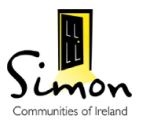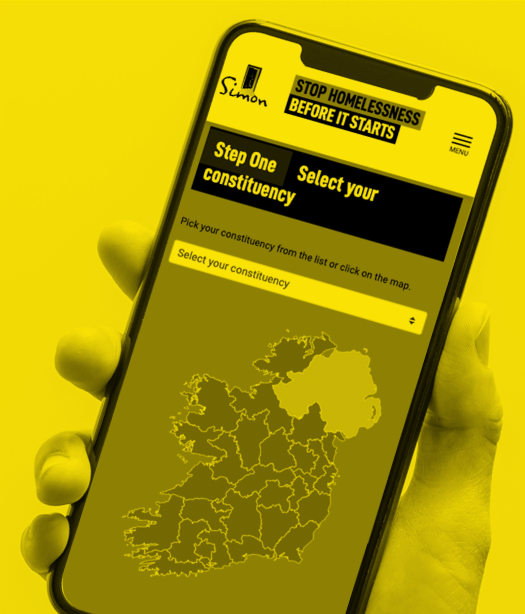
Single people bear the brunt of the homelessness and housing crisis.
Homelessness: The number and growing rate of single people in homelessness is deeply concerning. According to the latest figures from the Department of Housing, there are now 5,184 single adults living in emergency homelessness accommodation[1]; this is the highest number of single people in homelessness on record and accounts for 78% of all households in homelessness.
Emergency policy measures introduced during the pandemic – such as the moratoria on evictions and a ban on rent increases – resulted in a welcome fall in family homelessness. These measures to protect people from housing insecurity failed, however, to support single person households.
Demand for Social Housing: Single people make up the largest proportion of those waiting on social housing accounting for 55% of all households[2]. The effects of the Covid-19 pandemic can again be seen here. Between 2020 and 2021, the number of single adults waiting on social housing increased by 1.1% while all other household types witnessed a significant drop.
Hidden Homelessness: Single people may be more vulnerable to hidden homelessness. Research conducted during Simon Week 2022 found that single people were less likely to see periods of hidden homelessness as a ‘temporary situation’ with a clear leaving date compared to those who were married. This indicates that single person households were more likely to experience an extreme form of hidden homelessness.
Why is Housing Insecurity and Homelessness Affecting Single People this way?
Increasing homelessness and an unmet social housing demand for single people is indicative of a housing system that does not cater to their needs. Housing policy, legislation, and prices are designed with couples, families, and co-habiting in mind.
Single bed properties are near impossible to find, and those that are available are often unaffordable. The average rent in new tenancies is now €1,203 per month for a one-bed property[3]. A single person would need to be taking home €4,010 after deductions in order for this to be affordable. For context, a person working full-time on minimum wage in Ireland will earn €1,622 a month after deductions.
We need a housing system that caters to all people and household types. Our housing system economically favours and entraps people into relationships. This is a dangerous situation, particularly for women experiencing domestic abuse. A lack of housing affordable housing available for single people and single income families can force women experiencing domestic abuse to choose between their safety and homelessness.
What can be done? Utilise the thousands of Vacant Homes
Now is the time for solutions. The Government needs to take decisive steps to increase the availability of one-bed properties suitable and affordable for single people.
Currently, we have over 166,000 vacant properties throughout the country (not including ‘over the shop’ space, holiday homes, or vacant commercial space). The Simon Communities of Ireland are calling for the State to bring 5,000 vacant properties into the market through a renewed focus on a reformed Repair and Lease Scheme (RLS).
These homes can be used to quickly house thousands of households in homelessness and on the social housing waiting list. It is an environmentally conscious policy that would reduce pressure on the private rental sector, reduce the State’s reliance on HAP, and efficiently increase our available housing stock.
What Can You Do? Use your Voice!
We need your voice and your support. The Budget provided incremental progress towards tackling vacancy through the introduction of a vacant homes tax, but measures are not strong enough to make meaningful change and will not help people in homelessness or on the social housing list.
Pledge your support to our campaign and help us to forward creative solutions to the housing and homelessness crisis. Sign up to become a Simon Advocate to get more involved in homelessness policy and advocacy.
[1] Available at: https://www.gov.ie/en/collection/80ea8-homelessness-data/
[1] Summary of Social Housing Assessments, 2021. Available at: https://assets.gov.ie/219921/a5419e65-a5ff-4c84-80de-1f18919e0c73.pdf
[1] RTB Rent Index, Q1 2022. Available at: https://www.rtb.ie/images/uploads/general/RTB_Rent_Index_Q1_2022_Final.pdf

